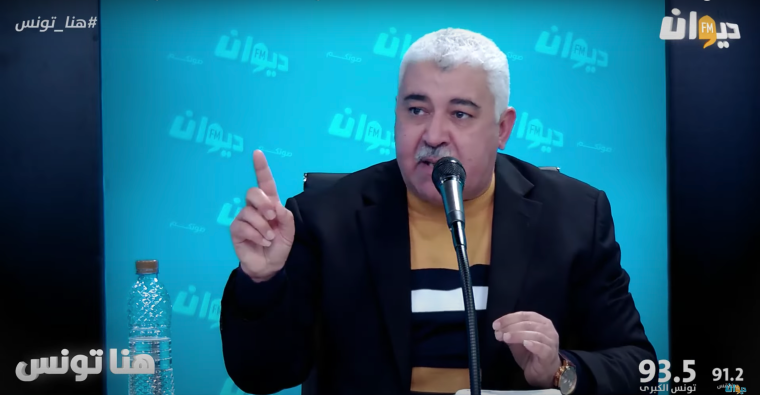New York, August 12, 2022 – Tunisian authorities must immediately and unconditionally release journalist Salah Attia and ensure that journalists in the country can work without the threat of imprisonment, the Committee to Protect Journalists said Friday.
On June 11, plainclothes security officers arrested Attia, founder and editor-in-chief of local independent news website Al-Ray al-Jadid, from a coffee shop in Tunis, according to news reports. The officers brought Attia to a military detention facility in Tunis, where they questioned him about his source for a statement he made in an interview on Al-Jazeera on June 10, in which he claimed that President Kais Saied had ordered the army to forcibly close the office of the Tunisian General Labor Union (UGTT), a trade union, and that the army refused to comply, according to those reports and CPJ’s review of the interview. On June 11, the UGTT released a statement on Facebook denying Attia’s claims.
During Attia’s first hearing at the Military Court of First Instance in Tunis on July 13, the investigative judge asked him to name his source for the June 10 assertion and he refused, citing Tunisia’s communication law that gives journalists the right to not reveal their sources in court, according to news reports. The judge then accused Attia of “accusing public officials of illegal actions, without proof,” “intentionally harming others, and disturbing their peace, through the media,” and “harming the army’s morale and reputation,” and ordered his detention pending trial, according to those reports.
The judge did not officially charge Attia, but if he is charged and convicted he could face up to seven years in prison on the combined charges, according to the country’s penal code and communication law.
During a July 29 hearing, Attia’s trial was postponed until August 16, according to Sondes Attia, the journalist’s daughter, who spoke to CPJ via messaging app, and news reports. As of Friday, Attia remains in pretrial detention in the Mornaguia Prison in Tunis, according to his daughter.
“Salah Attia’s arrest and prosecution in a military court is yet another example of how President Kais Saied’s regime is undermining freedom of the press in Tunisia,” said CPJ Middle East and North Africa Program Coordinator Sherif Mansour in Washington, D.C. “Tunisian authorities must immediately and unconditionally release Attia and ensure that all journalists in the country can report without fear of imprisonment.”
On July 20, Attia started a hunger strike to protest his prosecution in a military court, and ended it on Saturday, August 6, after he fainted and was transferred to the prison’s hospital, according to Attia’s daughter and news reports.
CPJ emailed the Tunisian Ministry of Interior for comment but did not receive any response.
Over the past year, since Saied fired Prime Minister Hichem Mechichi and froze parliament’s activities on July 25, 2021, CPJ has documented numerous press freedom violations in Tunisia, including journalist arrests, the raiding of Al-Jazeera’s office in Tunis, and security forces’ assaults of journalists covering protests.
